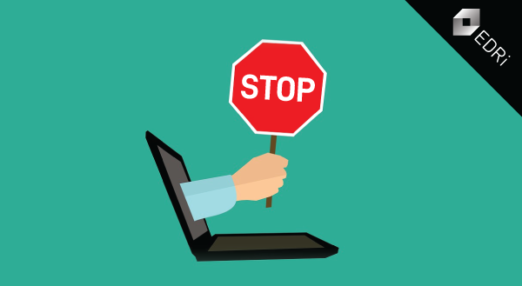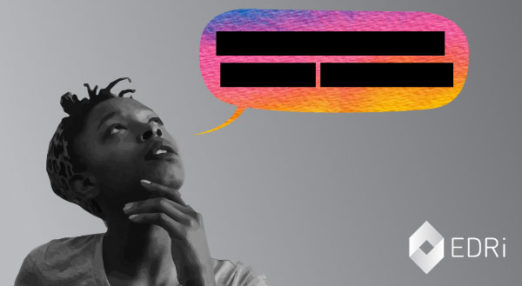Freedom of expression online
Filter resources
-

Interoperability: A way to escape toxic online environments
The political debate on the future Digital Services Act mostly revolves around the question of online hate speech and how to best counter it. Whether based on state intervention or self-regulatory efforts, the solutions to address this legitimate public policy objective will be manifold. In its letter to France criticising the draft legislation on hateful […]
Read more
-

France’s law on hate speech gets a thumbs down
France’s draft legislation on hate speech (also called the “Avia law”) received a lot of criticism. The draft law was approved in July 2019 by the French National Assembly and will be examined by the Senate in December. It would oblige platforms to remove flagged hateful content within 24 hours or face fines. The Czech […]
Read more
-

A privately managed public space?
Our “public spaces” online where we meet each other, organise, or speak about social issues, are often controlled and dominated by private companies (platforms like Facebook and YouTube). Pushing platforms to decide which opinions we are allowed to express and which not is not going to solve major problems in our society. The EU rules […]
Read more
-

Hate speech online: Lessons for protecting free expression
On 21 October, David Kaye – UN Special Rapporteur on the promotion and protection of the right to freedom of opinion and expression – released the preliminary findings of his sixth report on information and communication technology. They include tangible suggestions to internet companies and states whose current efforts to control hate speech online are […]
Read more
-

#PrivacyCamp20: Technology and Activism
The 8th annual Privacy Camp will take place in Brussels on 21 January 2020. With the focus on “Technology and Activism”, Privacy Camp 2020 will explore the significant role digital technology plays in activism, enabling people to bypass traditional power structures and fostering new forms of civil disobedience, but also enhancing the surveillance power of […]
Read more
-

EU copyright dialogues: The next battleground to prevent upload filters
On 15 October, the European Commission held the first of the stakeholder dialogues, mandated by Article 17 of the EU copyright Directive, inviting 65 organisations to help map current practices, and opening the door for deeper collaboration in the future.
Read more
-

Trilogues on terrorist content: Upload or re-upload filters? Eachy peachy.
On 17 October 2019, the European Parliament, the Council of the European Union (EU) and the European Commission started closed-door negotiations, trilogues, with a view to reaching an early agreement on the Regulation on preventing the dissemination of terrorist content online. The European Parliament improved the text proposed by the European Commission by addressing its […]
Read more
-

Content regulation – what’s the (online) harm?
In recent years, the national legislators in EU Member States have been pushing for new laws to combat negative societal phenomena such as hateful or terrorist content online. These regulatory efforts have one common denominator: they shift the focus from conditional intermediary liability to holding intermediaries directly responsible for the dissemination of illegal content on their platforms.
Read more
-

CJEU ruling on fighting defamation online could open the door for upload filters
Today, on 3 October 2019, the Court of Justice of the European Union (CJEU) gave its ruling in the case C‑18/18 Glawischnig-Piesczek v Facebook. The case is related to injunctions obliging a service provider to stop the dissemination of a defamatory comment. Some aspects of the decision could pose a threat for freedom of expression, in particular that of political dissidents who may be accused of defamatory practices.
Read more
-

Facebook users blocked simply for mentioning a name?
Merely writing or including two words, in this case “Tommy Robinson”, in a Facebook post or link is enough to get the post removed and the writer blocked. At least it seems so in Denmark and Sweden.
Read more
-

CJEU: Public documents could be censored because of copyright
On 29 July 2019, the Court of Justice of the European Union (CJEU) delivered a judgment that could have serious impact on freedom of expression. The case (C‑469/17) concerns Funke Medien NRW GmbH, the editor of the German daily newspaper Westdeutsche Allgemeine Zeitung, and Bundesrepublik Deutschland (Federal Republic of Germany). It follows a request in […]
Read more
-

The Netherlands, aim for a more ambitious copyright implementation!
All EU Member States are obliged to implement the newly adopted EU Copyright Directive, including its controversial Article 17. But how to interpret it, is up to them. In the Netherlands, there is currently a draft bill, which is unfortunately very disappointing. The government really needs to try much harder to protect the interests of […]
Read more
